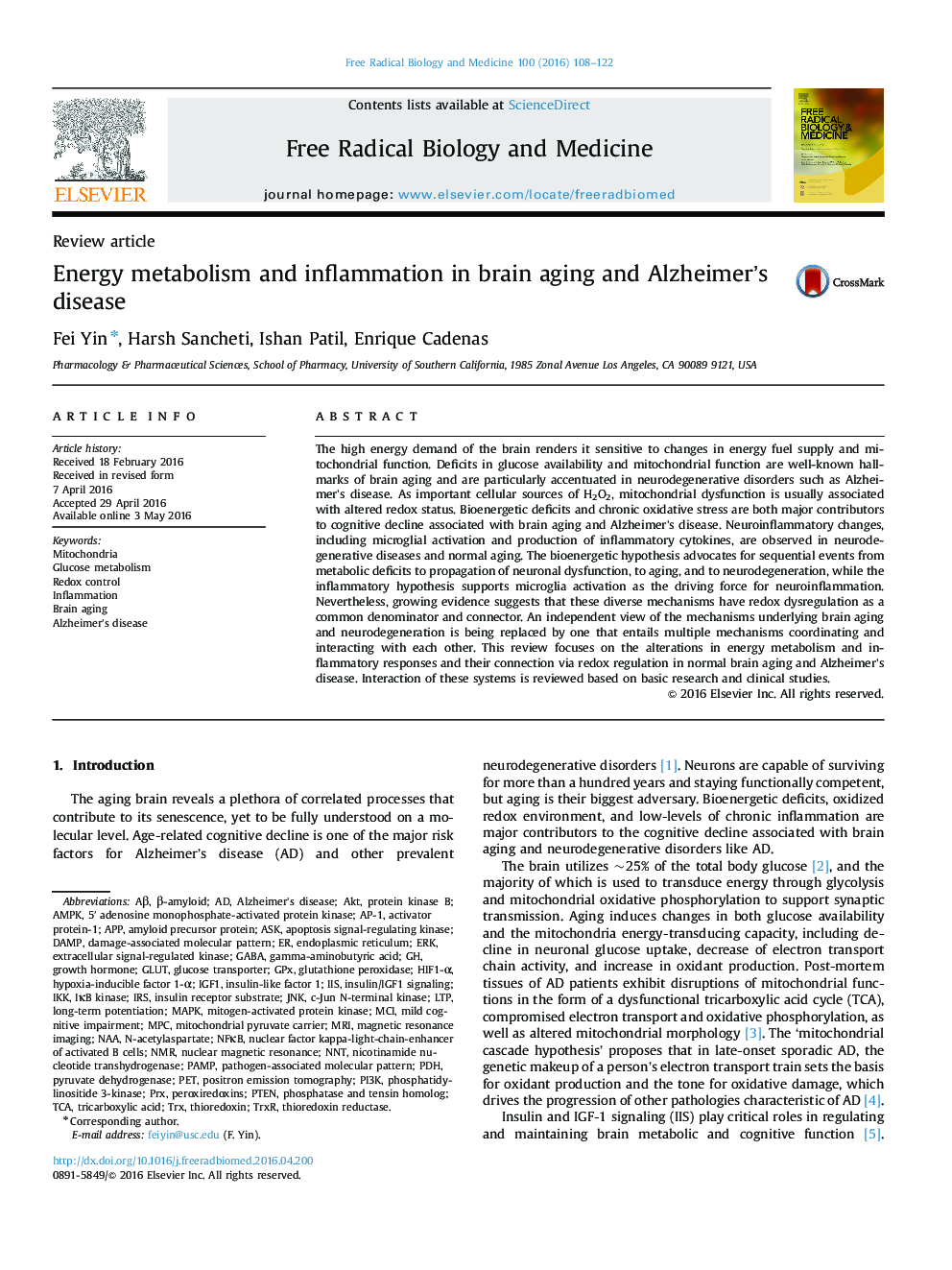| Article ID | Journal | Published Year | Pages | File Type |
|---|---|---|---|---|
| 5501914 | Free Radical Biology and Medicine | 2016 | 15 Pages |
â¢Mitochondrial hypometabolism characterizes brain aging and Alzheimer's disease (AD).â¢Redox dysregulation and chronic neuroinflammation are observed in brain aging and AD.â¢Redox control links energy metabolism and inflammatory responses in the brain.â¢Brain metabolic-inflammatory axis describes dynamic interaction of these systems.
The high energy demand of the brain renders it sensitive to changes in energy fuel supply and mitochondrial function. Deficits in glucose availability and mitochondrial function are well-known hallmarks of brain aging and are particularly accentuated in neurodegenerative disorders such as Alzheimer's disease. As important cellular sources of H2O2, mitochondrial dysfunction is usually associated with altered redox status. Bioenergetic deficits and chronic oxidative stress are both major contributors to cognitive decline associated with brain aging and Alzheimer's disease. Neuroinflammatory changes, including microglial activation and production of inflammatory cytokines, are observed in neurodegenerative diseases and normal aging. The bioenergetic hypothesis advocates for sequential events from metabolic deficits to propagation of neuronal dysfunction, to aging, and to neurodegeneration, while the inflammatory hypothesis supports microglia activation as the driving force for neuroinflammation. Nevertheless, growing evidence suggests that these diverse mechanisms have redox dysregulation as a common denominator and connector. An independent view of the mechanisms underlying brain aging and neurodegeneration is being replaced by one that entails multiple mechanisms coordinating and interacting with each other. This review focuses on the alterations in energy metabolism and inflammatory responses and their connection via redox regulation in normal brain aging and Alzheimer's disease. Interaction of these systems is reviewed based on basic research and clinical studies.
